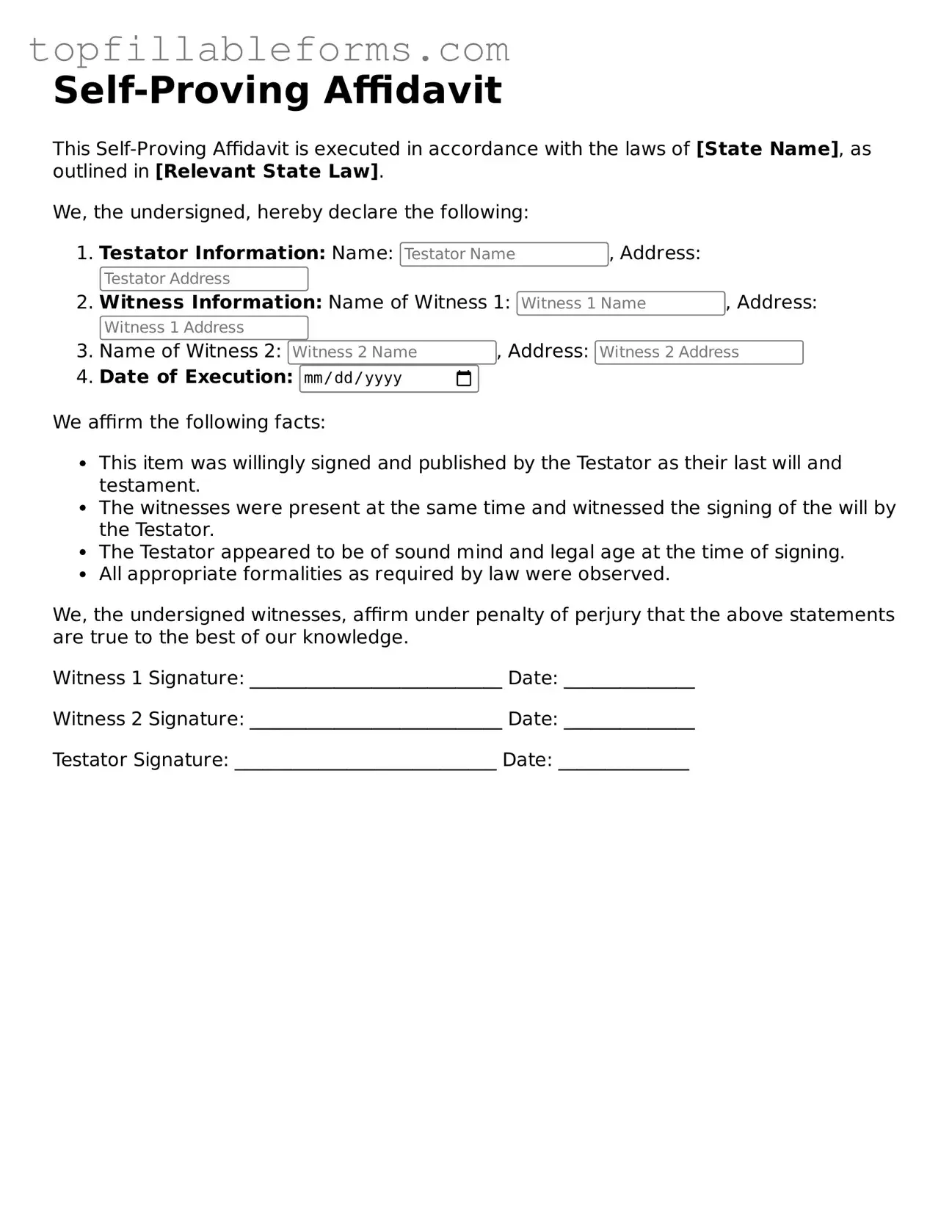Free Self-Proving Affidavit Form
The Self-Proving Affidavit form is a legal document that allows a will to be validated without the need for witnesses to testify in court. This form simplifies the probate process by confirming the authenticity of the will through the signatures of the testator and witnesses. By using this affidavit, individuals can ensure a smoother transition of their estate according to their wishes.
Open Self-Proving Affidavit Editor Here

Free Self-Proving Affidavit Form
Open Self-Proving Affidavit Editor Here
Finish the form now and be done
Finish your Self-Proving Affidavit online by editing, saving, and downloading fast.
Open Self-Proving Affidavit Editor Here
or
▼ PDF File
